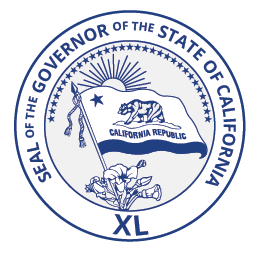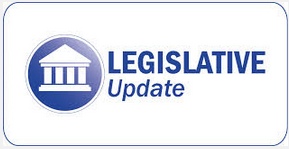Final Actions on Legislation in 2019
 Sunday, October 13 was the final deadline for Governor Newsom to sign or veto all of the legislation sent to him during the 2019 Legislative Session. This year the Legislature introduced 3033 bills, and the Governor ultimately signed 1169 and vetoed 172. Several bills with which CASA was actively involved with have been signed into law and become effective January 1, 2020. Agencies should review the following bills with their legal counsel to make sure they are in compliance with these new laws: AB 68 (Ting), SB 13 (Wieckowski), AB 1483 (Grayson) and AB 1486 (Ting).
Sunday, October 13 was the final deadline for Governor Newsom to sign or veto all of the legislation sent to him during the 2019 Legislative Session. This year the Legislature introduced 3033 bills, and the Governor ultimately signed 1169 and vetoed 172. Several bills with which CASA was actively involved with have been signed into law and become effective January 1, 2020. Agencies should review the following bills with their legal counsel to make sure they are in compliance with these new laws: AB 68 (Ting), SB 13 (Wieckowski), AB 1483 (Grayson) and AB 1486 (Ting).
AB 1483 (Grayson) – Requires Agencies to Post Fee Repots and Nexus Studies Online
AB 1483 (Grayson) is a local government fee transparency bill that incorporates several recommendations from the recent study released by the California Housing and Community Development Agency entitled: Residential Impact Fees in California. The bill was substantially amended in the last weeks of the legislative session with several new provisions relating to mandatory posting of documents on a local agency’s website.
The bill requires, by January 1, 2020, a city, county, or special district to post additional information relating to fees and other housing and development information on their website. The required fee information varies for cities, counties, dependent special distircts, and independent special districts. Accordingly, we recommend conferring with your agency counsel on compliance with this section. For independent special districts like sanitation districts, sanitary districts, community services districts, etc., AB 1483 requires agencies to post the most current, and five previous annual fee reports or financial reports that an agency compiles in accordance with existing law, as well as all impact fee nexus studies, cost of service studies, or equivalent, conducted by the district on or after January 1, 2018.
AB 68 (Ting), SB 13 (Wieckowski) – Accessory Dwelling Units
There were almost a dozen bills moving through the Legislature this year that made changes to laws relating to accessory dwelling units. For the last several years, members of the legislature have been very focused on easing the restrictions on ADUs, as they are seen as part of the solution for building new residential units quickly to help alleviate the housing shortage in California. The bills we were closely involved with were AB 68, and SB 13. These two bills had varying different approaches for addressing some of the fee requirements and building restrictions for ADUs, and both have been signed.
CASA worked with the authors of these bills to protect local utility fee authority to charge connection and capacity charges under certain circumstances, as established in 2016 under SB 1069 (Wieckowski). However, the bills make small tweaks to some provisions of the statute governing how these fees are assessed, which agencies should be aware of. Both bills have been amended with parallel provisions, which notably include:
-The allowance of an additional 100 square feet of living space for an ADU, but the additional square footage is limited to ingress or egress.
-Clarifying changes to the provisions relating to when an agency can charge a connection or capacity charge, including a requirement to assess proportionality based on “square footage” instead of “size,” or based on the number of “drainage fixtures” instead of based on the number of “plumbing fixtures.”
AB 1486 (Ting): Modifies Requirements for Local Agencies Under the State Surplus Land Act
This bill was one of several major housing bills being discussed during the 2019 session. AB 1486 makes several modifications to the Surplus Land Act and is intended to allow for more opportunities for the construction of affordable housing.
The final amended version of the bill makes several changes to the Surplus Land Act that agencies will need to review and come into compliance with by January 1, 2020. CASA worked on this bill throughout the session with a coalition of other special districts and local agencies, and was able to remove our opposition and take a neutral position on the bill after the final set of amendments were taken in the Senate. Notably the bill makes major changes to how agencies designate and dispose of surplus land, creates new reporting requirements for the sale of surplus land, and creates new penalties for violations of these requirements, among many other changes. We recommend having your agency counsel review this legislation to account for any administrative changes necessary to come into compliance with the bill.




 @CASA_CleanWater
@CASA_CleanWater